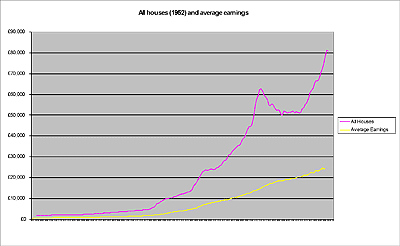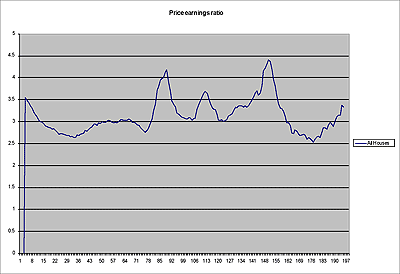BUYING ABROAD
General Information
If you search the internet and go to any property event such as the Ideal Home Exhibition you will have many people trying to sell you "investments" in properties abroad, advising you how good the returns will be. But is this "advice" more to help them sell their properties and gain commission than just on any factual evidence. We have certainly heard it said that most of the selling in the property market is based on enthusiasm and aspirations "within their company" and education and advice. We don't sell properties abroad or in the UK, hopefully therefore will fall into the latter category.
Why buy a property abroad?
From our experience in the UK you need to know why you are buying the property. Is it as a home or lifestyle property or is it as an investment? In which case the investment will be looking at capital growth or passive income. We will explain more about this later in the website.
We found, in our experience, with people in the UK property market is that they don't know whether they are considering buying the property as a home or as an investment, and that they won't achieve the same returns as a true investor.

Capital Growth - passive income explained

Capital growth is where you are looking for a net increase in the value of the property, by net we mean once all costs have been taken off. For example purchasing costs such as solicitors, valuations, mortgage arrangement fees, house purchases if abroad and the selling costs such as estate agents fees proving the kerb side appeal. The house/home staging costs that you will need to carry out and any incentives and again transfer of the currency if buying abroad, and finally your time at a reasonable rate.
Passive income is where a rental income is achieved without any involvement or you are only involved by choice. So again we are looking at net costs. These will be monthly costs of repaying the mortgage, less any management fees, maintenance fees, rates and energy bills if your rent is inclusive of such bills, together with your time.
We would comment finally that although buying at the right price is important, we feel selling at the right price is far more important. It is only once you sell the property can you truly say you either made a capital growth profit or a passive income profit.
Location, Location, Location
When looking at the property market we always think that people should consider the location very carefully. By this we mean something slightly different to the general concept of location, location, location.
First Location
This is the traditional where the property is located. If you are looking for capital growth you should be near a growth area. This may be because there is urban generation in the area, new facilities such as a new port or harbour with pool etc. If you are looking for rental income you should decide upon which market you should go in. For example if you are looking for a family market then the location in relation to a good school would be very important. If you are looking to work as a professional then the location to places of work and town centres are generally important. If you are looking to live as an older working professional then the things we have just mentioned are important plus parking.
Second Location
This is location position that we are within the housing market as a whole. For example when this was being dictated, back in April 2005, the housing market was very stagnant and we were frequently coming across people that had had their houses on the market for six months plus. Over the proceeding five or so years the market had been rising and had therefore been very good for capital growth and passive income. Unless you are buying below market value (BMV) such as a property being a repossession, probate (death) or divorce then there is very little capital growth in the market in most areas (this is a very broad sweeping statement and there is still some capital growth to be had, providing you find the right areas at the right price).
Third Location
We generally recommend to people they look for an average property in an average area, as these will generally sell no matter what the market is, sooner or later. The average average varies from area to area. For example around a school area if you are looking for capital growth then you should be looking for a property with three bedrooms and a garden and anticipating that the market you sell to would be a family. If you are looking for example in the centre of a city then an average average maybe a two bedroom apartment/flat (however care should be taken in this market - ring us up if you want to know more 0800 298 5424).
We would certainly avoid the starter homes (often known as cluster homes) or bed-sits (although in Central London we have come across bed-sits that have sold no matter what the property climate). It can now be argued that people working from home means the old three bedroom requirement has now moved up to four bedrooms, particularly with newer properties where the rooms are not particularly large.
Research, Research, Research
When buying a property you can feel that you are not spending real money, as the deposit is your only real cash down. This can be manipulated (please phone us with regard to no cash down deposits and gifted deposits 0800 298 5424). The remaining amount of money is used on a mortgage, although considerable leverage is achieved when purchasing the property.
Unequalled in any other investment (for example if you went to your bank manager asking to borrow a hundred thousand pounds and you are putting down a 10% deposit for a new business, or to buy shares or lottery tickets! they would not entertain the idea). However day in day out mortgages are offered on such a basis.
Having dealt with repossessions, both when working for a bank and also helping investors purchase property, it really hits home that it is real money as the person being repossessed say that even after the house is sold off they still have to pay their debts.
Real Risks
Below is a graph of property prices since 1962. These have been prepared by the Halifax Bank which once was a Building Society (we will not go into the various arguments with regard to how statistics are prepared and how due to the location of the Halifax business and stipulation of the figures as inaccurate). We will simply use them as a guide.


You can see there are many times on the market when even buying at the right price and the right location you would have been taken with the flow of the market, either upwards or downwards.
Real Opportunities
Many people consider that you buy investment property and do nothing with it and present it back to the market and it will make money. This may well have been true in the past few years. However, in general, whilst they have been in the property market this is not correct. Properties can be enhanced with extensions, makeovers (known as house or home staging), divided into flats, parking added, they can be changed from a shop business into a house or vice versa etc. etc. etc. It is adding value to what you originally purchased that the real increases can be made.
